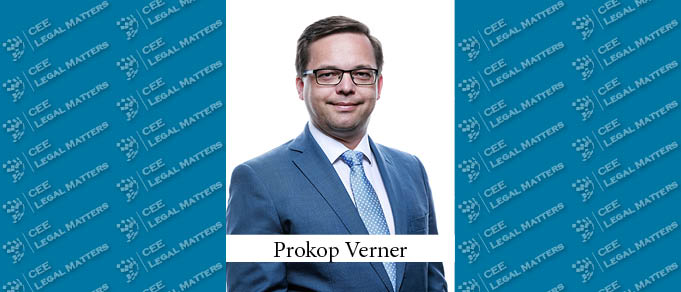While recent legal updates are causing delays and others are potentially removing positive developments, Allen & Overy Partner Prokop Verner points out that there are reasons to be optimistic, especially if one is to follow the energy and online retail sectors.
“Looking at the macroeconomic picture in the Czech Republic, as elsewhere in the CEE region, we feel a significant effect of the war in Ukraine,” Verner begins. “The situation is compounded by high inflation – one of the highest in Europe, with the official inflation rate of around 14%. This, in addition to increasing energy prices, creates challenges for the business sector. Many players, in particular, energy-intensive companies already feel it, but the second half of the year will likely be the most difficult, with a few insolvencies already on the horizon.”
Verner remains optimistic, that despite the challenges in the second half of the year, the Czech economy will start to recover afterward. “Since the end of the last year, we have a new government, with less populist policies and more responsible public spending and rational economic policies,” he explains. According to Verner, “it will likely contribute to a better economic environment in the following years.”
From a legal point of view, Verner highlights two recent major developments. “First of all, last year a new act on FDI control was adopted, subjecting a few infrastructure deals to the supervision of the Ministry of Industry and Trade,” he points out. “This has significantly prolonged the procedure and has an impact on investors coming from outside of the EU,” Verner says, noting that the ministry is still on the learning path on how to do it efficiently.
“Second, we have a new construction act, creating a new landscape for the development sector,” he adds. “The new law shortens the time for building new projects.” According to Verner, it is a positive step, as currently, developing a new project usually takes from 5 to 10 years, and something was needed to be done. “The current government did not support the amendment, as they oppose centralized decision-making in general and are rather in favor of such decisions being made by the local authorities,” he says.
“Surprisingly,” Verner notes, “the overall challenges faced by the country do not translate negatively to the law firms’ work. We remain still very busy, with no real slowdown.” However, Verner notes, that “there is a trend of fewer international players active on the market, while local and regional players still have an appetite for transactions.”
As for the future, Verner says that major developments are expected in the energy and online retail sectors. “The tender to extend the construction of a new nuclear power plant in Dukovany has finally been initiated,” he explains. “It is a long-term project, expected to be finalized in fifteen years, yet it is a huge step forward, dramatically shaping our energy market.” In addition, Verner says that online retail is another very active market, with many players. “We see their activities and appetite to expand to other markets. In that regard, a lot is going on both in transactional and TMT sectors,” he notes.















